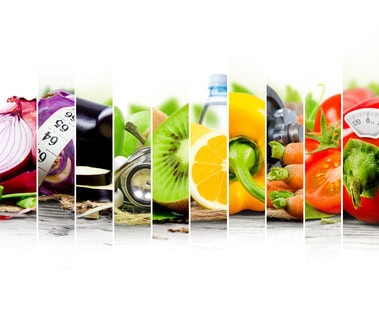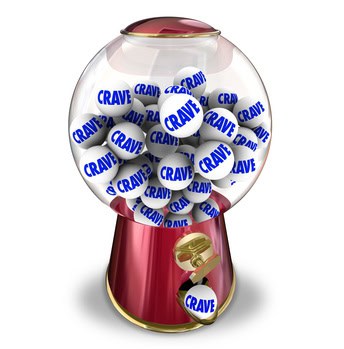
Your Body In Recovery | The Effects of Alcoholism on Our Bodies
I remember the first 60 days of recovery like it was yesterday – and that’s a good thing! It’s one of the memories of my sickness that keeps me from going back to the bottle. The emotional side of alcohol recovery is hard enough – feelings of depression, sadness, doubt, anxiety, and loss. But add the physical side effects – the shakes, sweats, stomach cramps, cravings for alcohol and sugar – and you end up with chaos.
Many recovery programs deal with the physical side effects by covering them up with medications to help with the feelings of depression and to counteract the cravings. Group and individual therapy, as well as 12-step programs, go a long way in helping the recovering alcoholic deal with the “head part” of the business. However, they rarely work on repairing the damage done internally – liver, brain, vitamin and mineral deficiencies, as well as basic nutrition.
Alcohol depletes our bodies nutritionally. It changes the way our bodies process food. It eats up the vitamins and minerals we do put in our bodies. Over time, we end up so malnourished that our brains cannot think our way out of our predicament. Alcoholics who have gone that far are usually the ones we see on the streets. All it took was one night sitting in an alley waiting for an ambulance to take me to the hospital when I thought I had alcohol poisoning to get my semi-lucid mind to make the decision to finally get help.
During my early recovery I tried radical vitamin therapy – I worked with a local naturopath to increase the amount of vitamins typically depleted in an alcoholic: L-Glutamine, L-Tyrosine, and L-Tryptophan, B-complex, Ester C, Calcium, Magnesium, GLA, Pancreatic Enzymes, Betaine Hydrochloride, and Melatonin. I think the vitamin therapy helped a bit, but I was not working on the underlying psychological and emotional issues that come hand in hand with alcoholism. The amount of vitamins I had to consume to “push out” the toxins was the equivalent of 15-20 capsules every 2 hours a day for about a month. The expense (about $650) and the time it took to prepare and consume that amount of supplements ended the experiment. Insurance companies will pay for drugs, but not for supplementation.
As a trained and experienced personal trainer and nutrition specialist, I knew the best course of action was 2-prong: get a complete metabolic screening (fasted blood test) and have it analyzed by a Registered Dietician (RD), and get serious about therapy and a 12-step program. Now, I know not everyone is keen on 12-step programs, but I knew that if I didn’t use every resource at my disposal to get to the root of my addiction, I would lose my family, my job, and possibly my life. For the purposes of this article, I’ll explain the nutritional recovery process I went through as part of my alcohol recovery, which I have shared with my own fitness and nutrition clients whom are also seeking a path to alcohol recovery.
But first, it is important to understand a few things about how the media has corrupted the science of nutrition, what type of damage alcohol may have done to your body, and why supplementation doses should not be left to the untrained.
- As a people, Americans are over-dosing on protein in animal and supplement form. Several diet plans popularized on Facebook and in other online and print resources call for drinking protein shakes after working out, using protein shakes as a meal replacement, and “health and fitness” magazines and sites promote eating large amounts of protein in both supplement and animal form. The truth is two-fold: everyone’s body is different and no two people should use the same stock nutritional plan and expect the same results, and our bodies can only digest so much protein. The macronutrient ratios long held by the fitness industry – more protein, fewer carbs, and sometimes more fat, sometimes less – have been turned upside down by rigorous scientific study. Carbs are not bad, but over-processed foods can be. Consuming an excess of animal protein is not only bad for the cardiovascular system but also the environment. Good fats (olive oil, avocados, etc.) make a positive impact on cardiovascular health, while bad fats (animal fat and processed fats (margarine) have a negative impact.
- Alcoholism affects the whole body, but the most damage is done to the liver and the brain. To simplify, your liver loses its ability to process alcohol properly, and in turn cannot absorb and utilize nutrients the way it is supposed to. As a result, the toxins remain in your system and can go straight to your heart and brain. Your body lacks the ability to synthesize protein, so if you are in denial about your alcoholism, hit the gym hard, drink those protein shakes and eat extra protein “to build your muscles”, then your body will just expel the protein before it has a chance to process it, and the toxins from the animal protein will end up in your heart and brain. All that working out and “eating well” will not do you any good if you are still putting alcohol into your system. Your brain decreases its endorphin production, because the alcohol is making it artificially happy. This is why the first few days of alcohol recovery are so painful mentally and physically.
- As noted above, we tend to overdose on protein. When I interview my fitness and nutrition about their daily nutritional intake, I often find that people are eating fewer good foods and instead relying on meal replacements or other supplements for their vitamins and minerals. It is true that much of our food supply is inferior to what it was even when I was a child, but your brain needs mastication to get the endorphins firing. Chewing is essential to brain function. It is one of the reasons I used to let my students chew gum or eat during exams. True story! Michael Pollan puts it well when he advises us to “eat real food, everyday, mostly plants”. While I advise most of my clients to take a daily multivitamin formatted for their particular age and activity level, I also insist that they get serious about what else they put in their bodies. I have them set aside the protein shakes and meal replacements for the first month that they work with me and instead focus on adding real foods to their daily intake, one meal at a time. Add an apple at lunch today, add a handful of greens to dinner tonight, and add some oatmeal to breakfast tomorrow. Just like the saying goes, one day at a time.
Now, you or your favorite diet book may disagree with the above statements. I would ask you the same thing I ask any of the gym members who say they already have an exercise and eating plan: How is that working for you? If your metabolic tests come out well, then keep doing what you are doing. Like I said before, everyone is different. My sisters cannot eat or workout the way I do and expect to get the same results. None of my clients are on the same fitness or nutrition program.
However, if you are in recovery, regardless what stage, I would urge you to do the following to at least get a baseline:
- Get professional help – The article in the magazine, or the blog post on Bodybuilding.com will not address your individual situation. Get a full physical and request the help of a Registered Dietician. As a certified nutrition specialist I can provide meal planning as prescribed by a primary care provider or registered dietitian. Your personal trainer is under the same rules, so if they are “prescribing” supplements or meal planning, they are working outside the limitations of their practice. Buyer beware.
- Metabolic Screen (fasted blood test) – When you get your metabolic screen, be sure it includes results for the following: blood count, chemistry profile, thyroid function, urinalysis, 5-hour glucose tolerance, serum zinc/copper levels, candida-antibody assay, serum histamine, hair analysis (not absolutely necessary, but will screen for toxins), amino acids, keyptopyrroles, and DHEA. Discuss the results with a registered dietitian. If you believe you may have a food allergy, then let your primary care provider know this so that they can screen for that. Keep in mind that there is no screen for gluten intolerance – simply because it does not exist. You can have celiac discorder, and that can be screened for. However, a suspected intolerance to gluten is likely caused by an additive or other food source.
- Take baby steps – Alcoholics are, by nature, control freaks. The irony is that we are out of control. So, there is a tendency to want to change everything all at once. Cut out coffee, nicotine, sugar, and of course alcohol. I know from personal experience, my own clients, and results of good science, that deprivation rarely results in lasting habits. Concentrate on the alcohol and the underlying emotional and psychological issues first. Then find a way to become accountable – for me it was a daily meeting at the same place and same time for the first 60 days without question. For you it may be someone or something else. And then attend to your nutrition, which includes real food and potentially supplementing with the right vitamins and minerals for your body.
- Resources – Your primary care provider and registered dietitian can give you advice on resources for vitamins and other supplementation. I use Vitacost online (http://Vitacost.com), because the prices are excellent and they sell very reputable products. You should also be able to find local sources – just check the labels for unnecessary ingredients with the guidance of a registered dietitian.
What should your take-away be from reading this article? Just like tackling your alcoholism, get help from the pros to improve your physical, emotional and psychological health. You may have to try a few different doctors and registered dietitians before you find ones which you feel comfortable working with and whom have had positive results with recovering alcoholics. Anything you do to improve your health should be something you are willing to continue to do for the rest of your life. This is why radical approaches rarely work – “fad diets” are called that for a reason. Remember, just because your best friend is doing it does not mean you should be, too.
Here’s to your health!
Shelly Larson, CPT, Pn1
Disclaimer: The opinions and information presented in this article and by Shelly Larson are for informational purposes only and should not take the place of professional advice from you primary care provider or registered dietitian. Please seek help before making any changes to your fitness or nutritional plans.
Shelly Larson is a certified personal trainer and nutrition specialist with over 20 years experience in the education and fitness sector. She is currently working as a personal trainer at 24 Hour Fitness Yorba Linda Super Sport in Southern California and continues to work with private nutrition clients, both in person and online. She holds a Master of Educational Leadership, and is certified by the National Association of Sports Medicine and Precision Nutrition. She is currently pursuing certification as a Health Coach through the American Council on Exercise. You can find more information about Shelly’s nutritional services at Shelly Larson Fitness (http://shellylarsonfitness.com).



